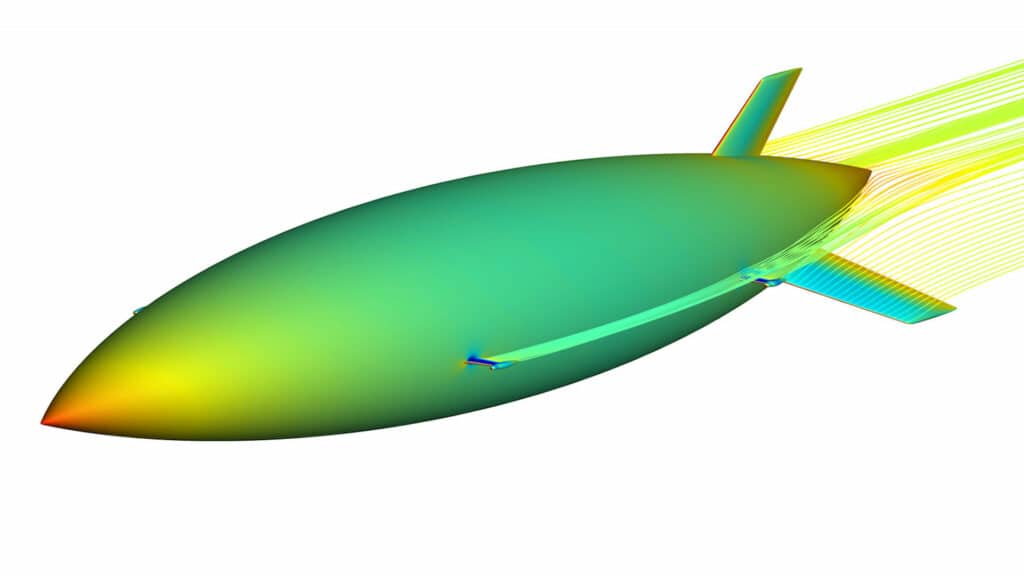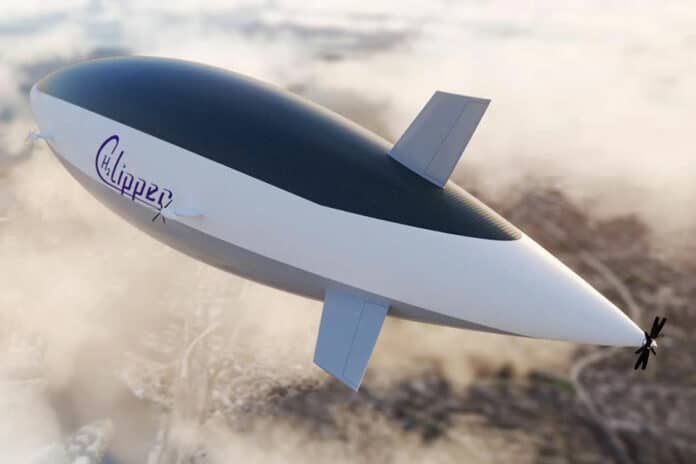The California-based startup, H2 Clipper, announced that it has completed a simulated wind tunnel test using computational fluid dynamics (CFD) of its hydrogen-powered “Pipeline-In-The-Sky” airship.
The analysis confirms that the airship‘s aerodynamic design achieves an extremely low level of residual drag and is another step in validating the airship’s operating performance and the company’s cost modeling.
The H2 Clipper airship design is the result of radically innovating and re-thinking lighter-than-air flights for global fuel and cargo transport. The airship uses the latest hydrogen fuel cells and powerful electric engines to travel globe-straddling distances of over 6,000 miles (9,656 km) at speeds of 175 mph (281 km/h) or greater. It uses the lifting power of hydrogen to carry 340,000 pounds (150 metric tons) of payload. With a cargo area of over 265,000 cubic feet, the H2 Clipper has 8 to 10 times more cargo space than any other air freighter.

H2 Clipper has received multiple patents on using an airship to deliver liquid hydrogen to the market, offering economic and logistical advantages over other methods of bulk delivery of hydrogen. By transporting cheap, clean power produced from renewable sources to markets with high energy demand, H2 Clipper solves the economic and effective challenges of transporting hydrogen from where it can be produced at the lowest cost to where it is most needed.
The company plans to get a prototype built by 2025, and to have a full-sized hydrogen airship flying in 2028.
In 2021, H2 Clipper was selected for inclusion in Dassault Systèmes’ exclusive 3DEXPERIENCE Lab accelerator program. It will help H2 Clipper advance its mission of developing and commercializing a global fleet of 100% green airships that will transform the hydrogen and air transport industry.
